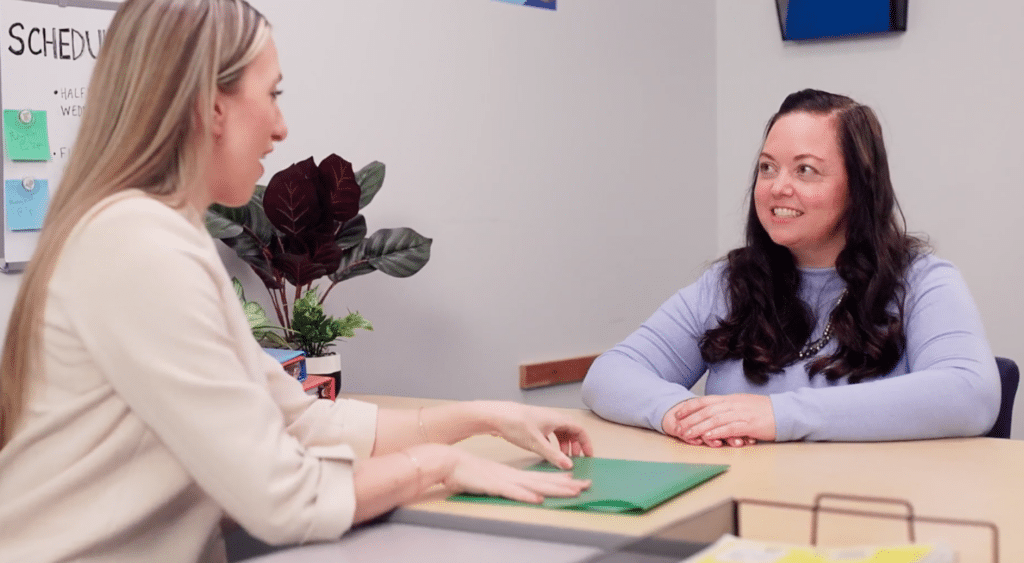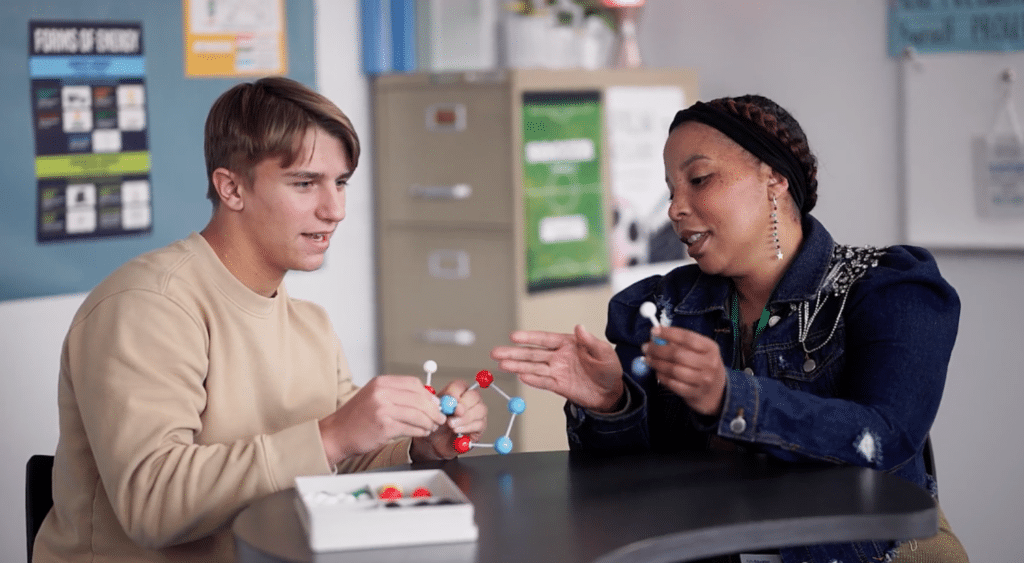First time substitute teacher tips: What to expect on day one.

—
Thinking about becoming a substitute teacher or getting ready for your first day in a classroom? Getting a clear understanding of what to expect will alleviate some of those jitters. Here are a few of our first time substitute teacher tips as you head through those school doors for the first time.
First time substitute teacher tips:
- Arrive early
- Bring your ID
- Ask the front office about safety protocol and other procedures
- Pick your clothing the night before
- Pack a sub bag of supplies
- Always follow lesson plans, policies, protocols
- Leave a note for the teacher
Where do I go when I arrive?
The front office is the first place to stop when you enter the school. Bring a government-issued I.D. because you’ll be required to sign in. This verifies the time you arrive and leave for the day. Arriving early on your first day is essential to give you time to find parking. review lesson plans, and get familiar with the classroom.
When you encounter other teachers and staff, make sure to introduce yourself. They will be glad to offer their support and tell you to contact them if you need help.
What to ask the front office.
Establishing a good relationship with the front office staff and teachers is a terrific way to learn more about the school’s people, policies, and processes. School secretaries enjoy collaborating with substitute teachers. The front office staff will have all the information you need, such as:
- The location of the classroom
- Attendance sheets
- Notes from the teacher
- Keys
- Computer passcodes
- Information regarding students with special needs
- Anything else you need to have a smooth, successful experience
The front office staff can also answer any questions you may have.
What to bring as a first time substitute teacher.
The best tip for what to expect as a first time substitute teacher—be prepared for the expected and unexpected. Pack a tote bag of items you may need throughout the day: food, lesson ideas, games, supplies, and the school’s rule book.
Health-related items.
You’ll come across potentially hundreds of people a day. You may want to bring personal, travel sized portions of these items. Of course, if you take any medications with your lunch, pack those, too.
- A small bottle of hand sanitizer
- Tissues
- Clorox wipes
- Your own medication (not to be given to students)
Food items.
If you are unsure how the lunch schedule works for teachers, pack light snacks or lunch. You can put it in the staff room refrigerator. Include water or other drinks to stay hydrated. Many teachers eat during a free period or while their students are eating lunch. However, the schedule varies at every school. The front office should provide you with this information.
Bag of backup ideas and activities.
It’s important to carry a backup bag of ideas that are appropriate for the age and grade you are teaching. This can include the following:
- Worksheets
- Academic games
- Extra lesson plans
- Books to read to the class
- Rewards for students, like inexpensive stickers
- Brain teasers
- Icebreaker games
Supplies.
Notebooks, paper, stationery, pencils or pens, erasers, sticky notes, name tags, and anything else you think will help you do a fantastic job are basic supplies to take with you. While the school may have these items in a supply closet, you may not have immediate access.
There also may be times when you have downtime. Even though it won’t be for a lengthy period, you may want to bring something interesting to do, like a book, crossword puzzle, or sudoku. We suggest staying off your phone or device. Many schools have policies about their usage during class time.
First time substitute teaching tips.
You should know and follow the school’s rules and policies. Be sure to keep track of any documents the front office gives you when you sign in. This way, you will know what to do in unusual circumstances, such as discipline issues, fire drills, and student health emergencies. Even in non-emergency situations, it’s good to know how to respond.
Follow routines, plans, and protocols.
You’ll be leading the classroom according to the teacher’s lesson plan. You must set the day’s tone with a confident introduction of yourself and your expectations for student behavior and learning. You should be friendly and welcoming so they feel comfortable with you as their teacher.
One of your first duties will be taking attendance and completing other “housekeeping chores,” such as collecting homework assignments. You will also spend most of the day following the teacher’s instructions regarding lesson plans.
Always follow the teacher’s plans before using backup lessons. Teachers spend much time preparing lesson plans for substitute teachers. The lesson plans support the school’s curriculum, so failing to follow lesson plans can affect students’ progress toward meeting standards.
Prepare the night before.
Preparation is a key to success, especially on your first day of substitute teaching. Kelly Education provides our substitute teachers with training and orientation. Feel confident that you have a firm grasp of policies, procedures, and guidelines—and you are well-prepared.
The night before is an excellent time to:
- Decide what to wear.
- Gather your list of questions for the front office staff.
- Pack your work bag to avoid rushing or running late. (include your name tag and badge)
- Get a good night’s sleep to feel refreshed, energized, and ready for a day of substitute teaching.
Understand emergency protocols.
The front office staff will likely give you a copy of the school’s emergency protocols. There will also be copies in the classroom, sometimes posted on the walls. It is a substitute teacher’s job to read the protocols and understand what to do if an emergency occurs. There should be separate protocol for every possible emergency, including tornadoes, intruders, fire, and more.
You may want to make a copy of the emergency steps to keep in your bag so you can review them outside the classroom.
Grow as a substitute teacher with Kelly Education.
Kelly Education works with school districts across the country to hire substitute teachers, paraprofessionals (paraeducators), and support staff. Our comprehensive orientation prepares our employees to feel confident and secure in schools on the very first day of substitute teaching. We cover school policies, what to bring with you, and the chain of command at each school in case of problems.
Also, we have an entire library of helpful articles for substitute teachers. Here are a few more to check out:
- Classroom management for substitute teachers
- What not to do as a substitute teacher
- Complete guide to becoming a substitute teacher
Are you looking for a way to give back to your community and be a great role model for students? Wondering where are the substitute teacher jobs near me? Fill out our brief interest form and one of our recruiters will contact you to answer your questions and share more about opportunities to become a sub teacher with one of our school district partners.
View Related: Article Job searching
You might like
Do substitute teachers get health benefits?
3 minute read
Do substitute teachers get health benefits?
3 minute read
Find your next job
Discover thousands of temporary, full-time, and remote jobs for beginning and experienced job seekers.



